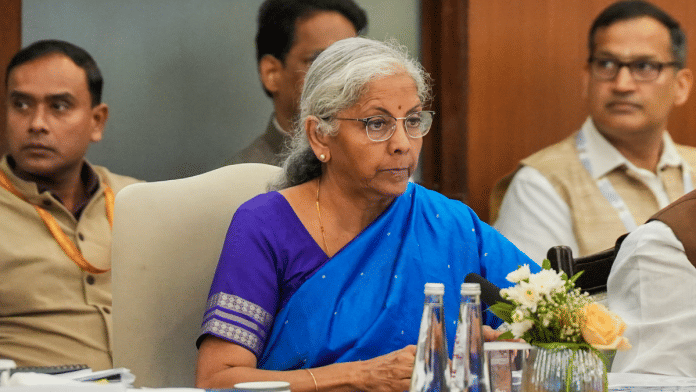The next-gen reforms to the existing GST were announced last week by the finance minister. While it comes amid the turmoil of Trump’s Tariffs kicking in, Union Minister Ashwani Vaishnav has said that the reforms have no connection with any external factor.
The move reminds me of Kautilya’s wisdom in the Arthashastra: “The king should collect taxes from his subjects just as a bee collects honey from flowers, without causing harm to them.”
It underlines the ideal of taxation—necessary for the state, but light and non-oppressive.
The new simplified tax brackets of 5 per cent and 18 per cent follow this logic. “In line with the PM’s vision, the GST Council has recommended a comprehensive reform package that includes rate rationalisation with a simplified two-slab structure (5 per cent and 18 per cent), sweeping rate reductions across sectors, with focus on common-man, labour-intensive Industries, farmers and agriculture, health, key drivers of the economy,” states PIB.
Fertiliser inputs such as ammonia, sulphuric acid, and nitric acid have been moved to the 5 per cent GST bracket, lowering input costs for fertiliser manufacturers and ensuring the timely availability of fertiliser for farmers. Lower GST on automobiles will raise demand. The auto component industry, of which many MSMEs are a part, will benefit as rising sales will create orders in the auto component supply chain. The common man benefits as daily essentials like toothpaste, soap, etc, will be taxed at 5 per cent instead of 18 per cent. Electronics, such as TVs, move to the 18 per cent bracket from 28 per cent, making the consumer market bearish in the run-up to the festive season.
The sharp reduction in GST on hotels, gyms, salons, and yoga services is set to ease costs for people, make wellness more accessible, and inject fresh energy into hospitality and services. Hotel tariffs up to Rs 7,500 per night now attract just 5 per cent tax instead of 12 per cent, while fitness centres, beauty services, barbers, and yoga classes have seen their GST rate slashed from 18 per cent to 5 per cent.
Also read: What vehicles become cheaper with new GST slabs—small cars, hybrids, tractors
Pay dearly for your sins
The kicker was the introduction of the ‘sin tax’—a slab of 40 per cent tax on items for the uber-rich or those that harm your health and well-being. A narrow band of products—like luxury cars, tobacco, and cigarettes—fall into what are termed “sin” or “demerit” goods. Under the new GST framework, this bracket extends to SUVs, tobacco, fizzy drinks, online betting and gaming, along with other luxury or harmful items. They carry the steepest tax and cess, designed not just to raise revenue but also to discourage consumption because of their social and health costs in India. My ‘sins’ are a penchant for sari shopping, so I am quite lucky that handloom saris will be taxed at a highly affordable 5 per cent.
Is the Bharat Sarkar the only one having this sense of right and wrong, especially when dealing with taxes? Detractors of the 40 per cent bracket seem to suggest it is moral policing.
It is noteworthy that many countries like the UK, Greece, Finland, and Chile implement a higher tax on tobacco products, which is utilised to discourage consumption and boost health care services. Taxes on sugary drinks have become increasingly common to combat rising rates of obesity and diabetes in Saudi Arabia and the UAE, and in Finland and France. Several countries, including Sweden, have imposed taxes on gambling and use the funds to help individuals with gambling problems. Recreational drugs such as cannabis are subject to sin tax in countries where these products have legal sanctity.
Also read: India-US relationship has survived darker times. Intelligence ties bind us together
Greater transparency, efficiency
The Bhagavad Gita states that governance and duty are the principles of detached, righteous action: “Therefore, without attachment, always perform the work that has to be done; for by doing work without attachment, one attains the Supreme.”
Tax reform can be seen as the government’s kartavya (duty)—to design systems that serve citizens equitably, without undue burden or political attachment. GST, in this sense, is not only an economic measure but also a moral one, aiming to align statecraft with dharma. The GST reforms were much needed to help the economy and to propel the country into Viksit Bharat mode.
“GST rate changes, along with RBI’s rate cuts, income tax rebates announced in FY26 budget, and easing inflation are all levers for a consumption uptick in the economy. We expect GST-related demand boost to add 100 to 120 bps to the GDP growth over the next 4-6 quarters, thereby nullifying the negative impact of higher tariffs on exports to the US,” said economist Garima Kapoor.
Thus, the new structure constructed by slashing multiple slabs is a welcome step toward achieving greater transparency, efficiency, and development in the Bhartiya economic ecosystem.
Meenakashi Lekhi is a BJP leader, lawyer and social activist. Her X handle is @M_Lekhi. Views are personal.
(Edited by Theres Sudeep)







Ok, madam, you are right. The BJP is right, Modi is always right.
Meenakshi Lekhi being a BJP leader will not see why GST got rationalized after many years only now.